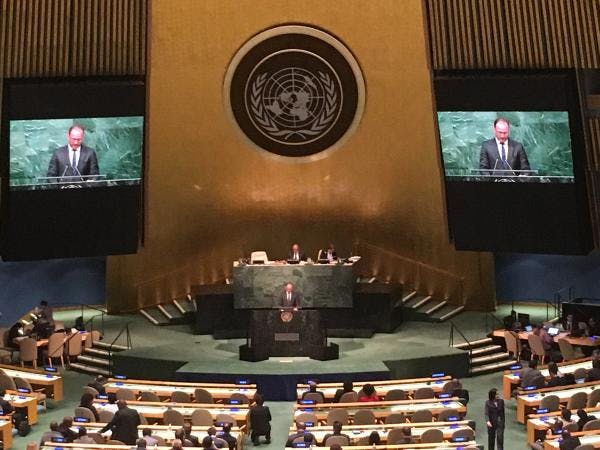La ‘victoria’ en materia de derechos humanos en la UNGASS sobre drogas de la que nadie habla
Pese a ser decepcionante, el documento final incluye una nueva fórmula en materia de derechos humanos que podría representar un avance después de la UNGASS 2016. Más información, en inglés, está disponible abajo.
Suscríbase a las Alertas mensuales del IDPC para recibir información sobre cuestiones relacionadas con políticas sobre drogas.
The April 2016 UN General Assembly Special Session (UNGASS) on the world drug problem offered a unique opportunity to re-examine the approach of punitive suppression that underpins global drug control. As the first such meeting to be held since 1998, it was a chance to set a new course, leaving behind what the UN Office on Drugs and Crime has called the negative ‘unintended consequences’ of the ‘war on drugs’.
Part of setting a new course must mean bringing human rights into the heart of drug control. For too long, States have approached international drug control law in isolation, as if these obligations exist separate and apart from the broader framework of international law, and may be interpreted and applied as if no overlapping treaty obligations come into play. This approach has contributed to the growth of human rights violations linked to drug control in all regions of the world – the death penalty; torture and inhuman or degrading treatment or punishment; arbitrary detention; denial of due process rights; violations of the right to health; mass incarceration; and many more.
However, the obligations established in the drug conventions cannot be interpreted and implemented in isolation, and must take into account concomitant obligations in other legal regimes. This principle has driven efforts – sometimes successful, other times not – to forge a more humane and rights-based approach to drug control within the UN system.
Click here to read the full article.
Keep up-to-date with drug policy developments by subscribing to the IDPC Monthly Alert.
Thumbnail: Marie Nougier, IDPC
